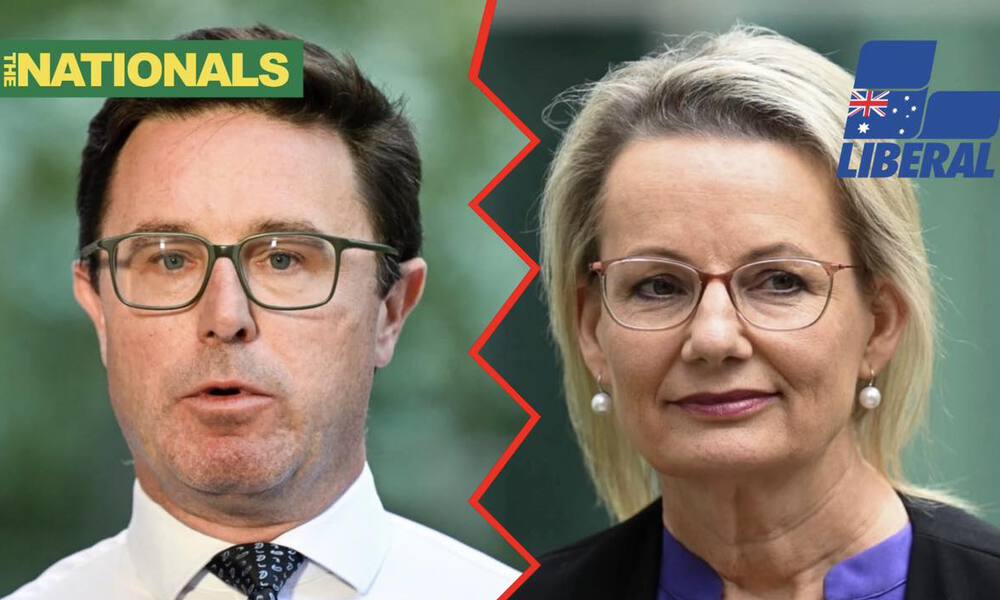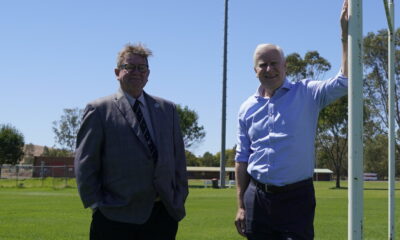National
COALITION COLLAPSE: Nationals split from Liberals in stunning post-election rupture

IN a stunning political rupture, the long-standing Coalition between Australia’s Liberal and National parties has officially collapsed amid the fallout of this month’s devastating federal election defeat.
The Nationals today announced they will break away from the Liberals, ending decades of political partnership that has shaped modern Australian governance.
It’s the third time the Coalition has split since it was formed in 1949 — a seismic shift that leaves the opposition fractured and directionless at a time of deep internal reckoning.
Nationals Leader David Littleproud confirmed the split came after several days of post-election talks with new Liberal leader Sussan Ley.
He said the two parties could not reach agreement on key policy positions — including nuclear energy, a regional Australia future fund, and forced supermarket divestiture.
Despite the schism, both leaders say they remain open to renewing the Coalition before the next election.
But until then, the Nationals will no longer be part of the official opposition, and their MPs and senators will hold no shadow cabinet positions.
“This morning, after the discussions that both Sussan Ley and I have had over the ensuing period, our party room has got to a position where we will not be re-entering a Coalition agreement with the Liberal Party after this election,” he said.
“What we have got to a position is that the National Party will sit alone on a principle basis —looking forward, not having to look back — and to try and actually regain important policy pieces that change the lives of the people we represent.”
Littleproud said the Nationals’ decision gives Ley and the Liberals the space to reassess their political identity after suffering a landslide electoral wipeout — particularly in inner-city and suburban seats where the party now faces an existential crisis.
Pressure is mounting on the Liberals to shift back to the “sensible centre” on economic, energy, climate, and gender policies if they are to regain voter trust.
But the Nationals are holding their ground. Littleproud doubled down on nuclear energy, saying the election loss was not a rejection of the policy, but the result of scare campaigns around nuclear and Medicare.
He also reaffirmed the Nationals’ opposition to any live export ban and reiterated calls for a regional Australia future fund and the forced break-up of supermarket giants.
“We’ve been very principled about [supermarket divestiture] — about the impact it’s had on farmers but also the impact that it’s had on the Australian consumer, whether they be in metro or rural areas,” he said.
Littleproud also noted that negotiations with Ley had progressed at her pace, out of respect for her mother, who died over the weekend.
“I made myself available to go to Albury when she wanted to initiate those discussions, rather than making her come to Canberra… My thoughts are still with Sussan and her family for the loss of Sussan’s mother.”
This is not the first time the Coalition has fractured — but it is the most consequential break in decades.
Following Labor’s “It’s Time” victory under Gough Whitlam in 1972, the parties failed to form a combined opposition but rejoined forces for the 1974 election.
In 1987, the Coalition again split during Queensland Premier Joh Bjelke-Petersen’s rogue tilt for the prime ministership — but they were reunited by the end of that year.
Today’s split marks the first full breakdown in the Coalition since then — and throws Australian conservative politics into uncharted waters.














